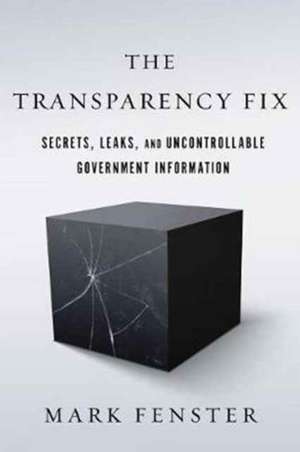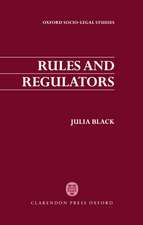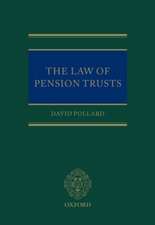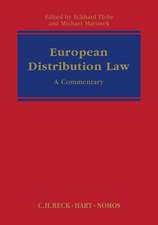The Transparency Fix – Secrets, Leaks, and Uncontrollable Government Information
Autor Mark Fensteren Limba Engleză Paperback – 10 iul 2017
| Toate formatele și edițiile | Preț | Express |
|---|---|---|
| Paperback (1) | 214.95 lei 43-57 zile | |
| MK – Stanford University Press – 10 iul 2017 | 214.95 lei 43-57 zile | |
| Hardback (1) | 649.73 lei 43-57 zile | |
| MK – Stanford University Press – 10 iul 2017 | 649.73 lei 43-57 zile |
Preț: 214.95 lei
Nou
Puncte Express: 322
Preț estimativ în valută:
41.13€ • 43.05$ • 34.23£
41.13€ • 43.05$ • 34.23£
Carte tipărită la comandă
Livrare economică 31 martie-14 aprilie
Preluare comenzi: 021 569.72.76
Specificații
ISBN-13: 9781503602663
ISBN-10: 1503602664
Pagini: 296
Dimensiuni: 153 x 228 x 21 mm
Greutate: 0.44 kg
Editura: MK – Stanford University Press
ISBN-10: 1503602664
Pagini: 296
Dimensiuni: 153 x 228 x 21 mm
Greutate: 0.44 kg
Editura: MK – Stanford University Press
Notă biografică
Mark Fenster is the Cone, Wagner, Nugent, Hazouri & Roth Tort Professor at the Levin College of Law, University of Florida. He is the author of Conspiracy Theories: Secrecy and Power in American Culture (1999, 2008).
Cuprins
Contents and Abstracts
Introduction: The Transparent State We Want But Can't Have
chapter abstract
This chapter introduces the book's arguments: Transparency and secrecy share a cybernetic theory of information transmission by which the state can control its information (in order either to release or secure it); the state's information is identifiable and capable of being released or secured; and a public or other receiver awaits the information's release and will respond to it rationally and predictably. This theory permeates advocacy, laws, and popular ways of understanding the state and its information. But the theory does not describe the contemporary state, which is both too secret and too leaky.1Liberating the Family Jewels: "Free" Information and "Open" Government in the Post-War Legal Imaginary
chapter abstract
This chapter presents the history of early transparency advocacy and its relationship to prevalent theories of democracy. The concepts of "freedom of information" and the "right to know" carry the weight of the transparency advocacy movement. The concepts assumed their current meanings in the post-World War II campaign to fight against government secrecy, a campaign that established certain means of understanding the state, information, and the press that remain key elements of access to information law today-means that relied upon broader theoretical justifications developed in modern political theory. In their development and deployment, the two concepts reveal transparency's symbolic meaning, as well as its emphasis on the state as an entity defined by its information.2Supplementing the Transparency Fix: Innovations in the Wake of Law's Inadequacies
chapter abstract
FOIA has not fully solved the problem of government secrecy. Advocates' disappointment and frustration with the legal fix for government secrecy have spawned innovative transparency campaigns that seek a better, more effective means to unveil the state than legal rights. This chapter describes three of them: Transparency International and other anti-corruption NGOs; advocacy for digital transparency via the use of information technology to open government data and make a more responsive state; and WikiLeaks and the vigilante transparency movement it has helped usher in. The movements share a commitment to freeing government information but have different visions of the state and the best policies to make it transparent. The chapter demonstrates that the nearly universal embrace of transparency as a normative good masks irreconcilable substantive disagreements over what the newly visible state should look like.3Transparency's Limits: Balancing the Open and Secret State
chapter abstract
This chapter considers the philosophical and practical critiques of transparency and the justifications for secrecy that support a broad privilege for government to keep secrets. The longstanding, widely accepted notion that transparency must have limits and that state secrecy is essential for the state's functions has led to a body of law and group of norms that enable and even encourage the state to control information. The imperfect resolution to the conflict between secrecy and transparency follows from the contested boundaries between transparency's reach and secrecy's limits. This unresolvable contest in turn drives the chase for an elusive balance between disclosure and privilege, one that can produce both a vibrant democracy with an informed electorate as well as a secure nation and functional state.4The Uncontrollable State
chapter abstract
This chapter considers the state as a set of logically but loosely organized bureaucratic institutions that occupy vast geographic and physical space. The contemporary state's size and complexity resist the kind of informational controls that transparency and secrecy require as administrative ideals. These ideals presume the existence of a singular entity capable of communication, understood as sending the message of government information to a receiver or preventing itself from doing so by choosing to be uncommunicative. But the state cannot serve as the producer and repository of information that controls information's flow and acts as a unified, intentional communicator. It sprawls too much geographically and organizationally to perfectly send, or keep itself from sending, its information as a message.5The Impossible Archive of Government Information
chapter abstract
This chapter considers how the state's complex and contextual process of producing and holding information undermines the notion that the government information that is disclosed or kept secret can serve as a message worthy of transmission or suppression. "Government information" exists, of course, but only as a hypothetical ideal. It makes up a boundless archive that cannot be known. Most importantly, the archive cannot be fully disclosed or kept fully secret. The chapter illustrates this by discussing the difficulties created by the problem of conceptualizing and therefore controlling the government document, the sheer size of the government's archives, and the effects that the effort to keep information secret and to force its disclosure have on information's production and circulation in the bureaucratic state.6Disclosure's Effects?
chapter abstract
This chapter considers whether the disclosure of government information has effects by asking three questions: First, is the public capable of responding rationally and knowledgeably to disclosure? Second, does the public even exist in some discernible form? These two questions pose the core challenge to transparency and secrecy. The academic literature across multiple disciplines challenges not only the assumption that the public is capable of understanding state information but also that some public even exists in an identifiable form. The third question is whether institutions of various sorts-those state and private organizations that serve on the public's behalf or might undermine the nation's security and well-being-have the capacity to respond to disclosure in rational and predictable ways. To assume that these institutions can do so assumes that they too have the capacity to understand and respond rationally to government information-assumptions that rest on a shaky foundation.7The Implausibility of Information Control
chapter abstract
Secrecy is exceedingly difficult to maintain. This chapter offers three case studies that illustrate the various means by which information seeps out of the state, including deliberate leaks by officials and accidental leaks that occur by bureaucratic mistake, observation and reporting by people outside the government who witness state action, and the act itself of keeping secrets, which can disclose information about government plans and actions. One case study chronicles Vice President Cheney's surprisingly unsuccessful efforts to keep the National Energy Policy Development Group (NEPDG) secret; another describes several instances in which redaction has not kept secret the information it covers and shows how redaction fails to completely stop interpretation and knowledge while it generates imaginative means to gather information and interpret the absent content; and the third discusses the difficulty that the government faces in controlling even its most prized secrets about covert operations.8The Disappointments of Megaleaks
chapter abstract
The unauthorized release of massive numbers of classified or secret government documents offers an opportunity to test disclosure's effects. If transparency matters, then Edward Snowden and WikiLeaks' revelation of huge caches of documents should enable the public to learn more and engage more knowledgeably with the issues the documents raise, increasing public accountability with more enlightened political debate and participatory democracy. But if disclosure proves harmful and secrecy is essential, then the leak of these materials should significantly increase the nation's vulnerability in discernible ways and harm its relationships internationally. Reviewing open source materials, this chapter concludes that there is no clear or meaningful pattern of effects that WikiLeaks and Edward Snowden caused. This finding does not support the claims that advocates make about disclosure's necessity or its danger, and it casts doubts on legal standards that ask judges or officials to balance the benefits and risks of disclosure.Conclusion: The West Wing, the West Wing, and Abandoning the Informational Fix
chapter abstract
This brief concluding chapter discusses two things: how the TV series The West Wing demonstrates our ambivalence about secrecy and transparency by giving full access to a transparently fictional White House whose officials debated why they kept secrets; and why seeking to tinker with government institutions and transparency mandates will ultimately be more successful than imagining government information can be fixed.












